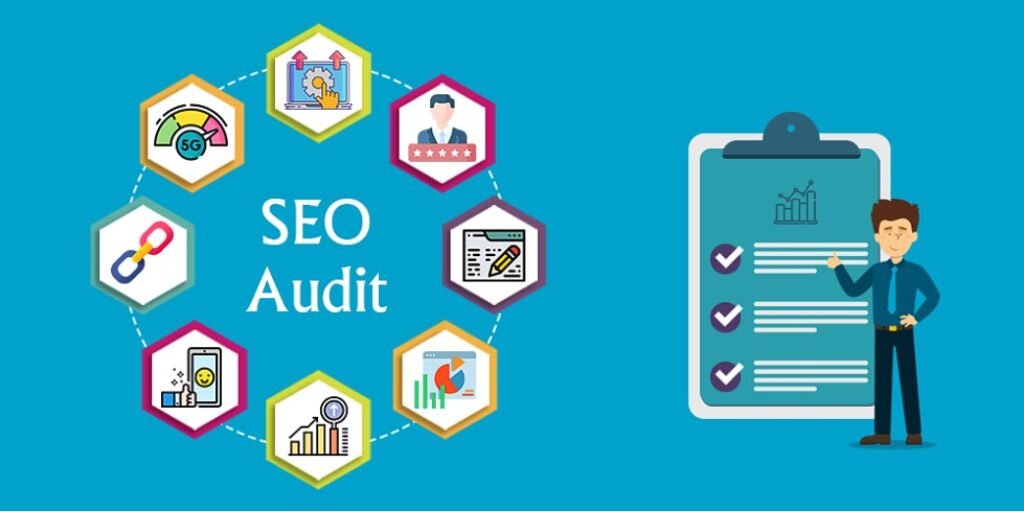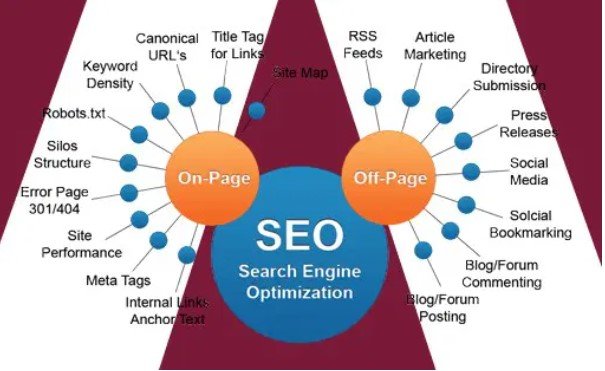Why Audit Is Important ?
The Significance of Auditing in Business. It Safeguards Trust, Ensures Compliance, and Drives Performance Excellence.
Auditing is extremely important for businesses in today’s dynamic and complex world. Auditing is crucial for ensuring the integrity, transparency, and effectiveness of fiscal systems. It furnishes stakeholders with the confidence they need to make informed opinions. This composition explores the multifaceted reasons why auditing is essential for businesses. It examines its part in securing trust, ensuring compliance, and driving performance excellence. In the complex business geography, checkups are very important. Auditing is a critical process. It ensures the integrity, trustability, and translucency of fiscal information. Checkups play a vital role in securing resources, improving operations, and promoting compliance. They go beyond their role in financial reporting. This composition delves into the multifaceted significance of checkups. It explores why they’re necessary for associations across diligence.

Ensuring Financial Accuracy and Reliability
At the core of auditing lies the assurance of fiscal delicacy and trustability. Businesses collect a lot of financial data. Stakeholders rely on this information to form informed opinions. Independent professionals conduct checkups to confirm the trustworthiness and accuracy of fiscal statements. This process provides assurance to shareholders, investors, and other stakeholders. It shows that an association’s financial information truly reflects its health. Checkups have a primary function.
1.Detecting crimes and frauds
They identify crimes and implicit fraud in an association. crimes, whether purposeful or unintentional, can compromise the delicacy of fiscal statements. Adjudicators use a methodical approach to review fiscal records. They identify linked disagreements and fix them. Checkups also act as a deterrent against fraudulent conditioning. They send a strong signal that unethical practices won’t go unnoticed.
structure Investor Confidence
Investors play a pivotal part in the growth and sustainability of businesses. Transparent and accurate fiscal reporting instills confidence in investors. This encourages them to invest capital in the association. Checked fiscal statements give an external confirmation of the company’s fiscal health. They serve as a tool to attract implicit investors and maintain the trust of being bones.
Why Audit Is Important for an agency

. II. Checkups contribute significantly to securing an association’s means and perfecting functional effectiveness. Beyond financial delicacy, they enhance an organization’s capacity. Asset Protection
Adjudicators assess the effectiveness of internal controls and threat operation systems. They ensure that an association’s means are adequately defended. This includes physical means like property and outfit. It also includes impalpable means, such as intellectual property and personal information. Checkups help associations identify vulnerabilities in asset protection. They use this information to apply measures to alleviate pitfalls and prevent losses.
functional effectiveness
checkups go beyond fiscal data, extending into functional processes. Adjudicators identify areas for improvement by assessing the effectiveness of internal controls. They also assess the effectiveness of business processes. This enhances the association’s overall effectiveness. It also saves costs and optimizes resources. By addressing inefficiencies, associations can streamline their operations and concentrate on strategic enterprise.
III. Regulatory Compliance and Legal Conditions
We are fully compliant with laws and regulations. The scrutiny has increased. It involves nonsupervisory roles. Checkups are crucial. They ensure that associations follow legal conditions, industry norms, and ethical practices.
Compliance Audits
Regulatory bodies put colorful rules and regulations on businesses to promote fair practices. They also cover consumers and maintain stability. Compliance checkups corroborate that an association is operating within these regulations. This includes areas similar to taxation, environmental regulations, data protection, and assiduity-specific norms. Non-compliance can lead to legal consequences. It can also result in fiscal penalties and damage to an association’s character.

Why Audit Is Important?
Ethical Practices
Checkups also assess the ethical practices of an association. They ensure that business conduct aligns with accepted ethical norms. This includes evaluating commercial governance. It also involves reviewing codes of conduct and the association’s overall ethical climate. Clinging to ethical practices isn’t only a legal demand. It’s also essential for erecting a positive commercial image and maintaining stakeholder trust.
- Strengthening Commercial Governance
Commercial governance is the frame of rules, practices, and processes. These are by which a company is directed and controlled. Checkups significantly strengthen commercial governance. They promote translucency, responsibility, and ethical decision-timber.
Board Oversight
Adjudicators play a pivotal part. They furnish independent oversight of an association’s fiscal reporting and internal controls. The board of directors must fulfill its liabilities effectively. This oversight is essential. Through checkups, associations can identify and amend any failings in their governance structures. This ensures that decision-makers have accurate and dependable information.
Stakeholder Responsibility
Audited fiscal statements enhance stakeholder responsibility. They provide an objective evaluation of an association’s fiscal health. This responsibility extends to directors, board members, and other crucial stakeholders. They are responsible for the association’s strategic direction and decision-making. Checkups foster a culture of responsibility. Stakeholders are held responsible for their conduct and opinions. Facilitating Decision-making and Risk Management
In a business terrain of question and threat, an informed decision-maker is critical. Checkups give valuable insight. This helps associations make informed decisions and manage pitfalls effectively.
Informed Decision- Making
Checkups offer a comprehensive review of an association’s financial and functional aspects. They help decision-makers understand their strengths, weaknesses, opportunities, and threats clearly. Directors can make strategic decisions. These decisions should align with the association’s ambitions and ensure long-term success. They are armed with accurate information. This aspect of checkups is particularly pivotal in competitive diligence. Quick and well-informed opinions can be a crucial differentiator.
Threat Identification and Mitigation
threat operation is an integral part of organizational strategy. Adjudicators assess the threat geography of an association. They relate implicit pitfalls that could impact its fiscal stability and functional durability. By understanding these pitfalls, associations can apply threat mitigation strategies and contingency plans. Checkups serve as a visionary tool for threat operation. They help associations navigate challenges and misgivings.
Safeguarding Trust The Foundation of Auditing
Trust is the foundation of any successful business relationship. Stakeholders, including investors, creditors, workers, and guests, depend on accurate fiscal information. They use it to form opinions. Auditing is an important tool for securing trust. It does this by singly assessing and vindicating a company’s fiscal statements.

Why Audit Is Important for a company?
Trustability of Financial Information
Adjudicators review fiscal statements to ensure they present a true and fair view of a company’s fiscal position. Adjudicators providing external confirmation enhances the credibility of fiscal reports. This fosters trust among stakeholders. Prevention and Detection of Fraud.
Adjudicators are trained to describe irregularities and disagreements that may indicate fraudulent conditioning. Uncovering and addressing fraud protects the company. It also reassures stakeholders that their interests are being shielded.
Enhancing Responsibility
Auditing instills a sense of responsibility within an association. The operation knows that its fiscal practices are subject to independent scrutiny.
Stakeholders are more likely to invest in or engage with a company. This is when it demonstrates a commitment to translucency and responsibility.
icing Compliance Navigating the Regulatory Landscape
The business terrain is subject to an ever-expanding web of regulations and norms. Auditing is necessary to ensure that associations behave legally and responsibly. It helps reduce the threat of penalties, legal action, and harm to their reputation.
Compliance with Financial Reporting Norms
Adjudicators assess if fiscal statements follow GAAP or IFRS, depending on the governance. Compliance ensures thickness and community in fiscal reporting. This eases a fair evaluation of a company’s performance.
Legal and Regulatory Conditions
Companies must follow many laws and regulations for their operations. These include the Sarbanes-Oxley Act. They also include the Dodd-Frank Wall Street Reform and Consumer Protection Act. There are also industry-specific regulations.
Adjudicators corroborate compliance with these laws. They help companies avoid legal consequences and promote ethical business practices.
Risk Management and Internal Controls
Auditing involves assessing the effectiveness of internal controls, relating sins, and recommending advancements. Strong internal controls reduce the threat of fiscal mismanagement, fraud, and crimes. They foster a culture of compliance within the association.
III. Driving Performance Excellence
Checkups enhance beyond compliance and trust. Auditing serves as a strategic tool for driving performance excellence. Adjudicators give valuable insight by critically assessing fiscal and functional processes. This insight can inform decision-making and contribute to organizational enhancement.
functional effectiveness
Adjudicators examine functional processes, relating areas for enhancement and effectiveness of earnings. Recommendations made during checkups can streamline workflows. They can reduce costs and enhance overall functional effectiveness. Strategic Decision Support
Adjudicators have a deep understanding of a company’s fiscal health. They can offer valuable insight into strategic decision-making. These perceptions may include openings for expansion, threat mitigation strategies, and fiscal soothsaying.

Why Audit Is Important for SEO?
nonstop Improvement Culture
Regular checkups contribute to a culture of continuous improvement within an organization. Companies that embrace a visionary approach to auditing are more likely to adapt to changing requests and challenges.
Conclusion about Why Audit Is Important?
In conclusion, the significance of auditing in business can not be exaggerated. Auditing is critical. It secures trust, ensures compliance, and drives excellence. Businesses are dealing with less regulation. The role of adjudicators becomes more critical. By investing in robust auditing practices, companies meet their legal scores. They also foster a terrain of translucency, responsibility, and nonstop enhancement. In doing so, they lay the foundation for sustainable success. They also earn the long-term trust of their stakeholders. They also promote non-supervisory compliance and strengthen commercial governance. They also help inform decision-making. As associations navigate a decreasingly complex business terrain, checkups provide a robust framework. They help maintain transparency, responsibility, and integrity. Recognizing the many meanings of checkups is not just fashionable. It’s also a strategic imperative for associations seeking long-term success. It builds trust in today’s challenging business environment.







